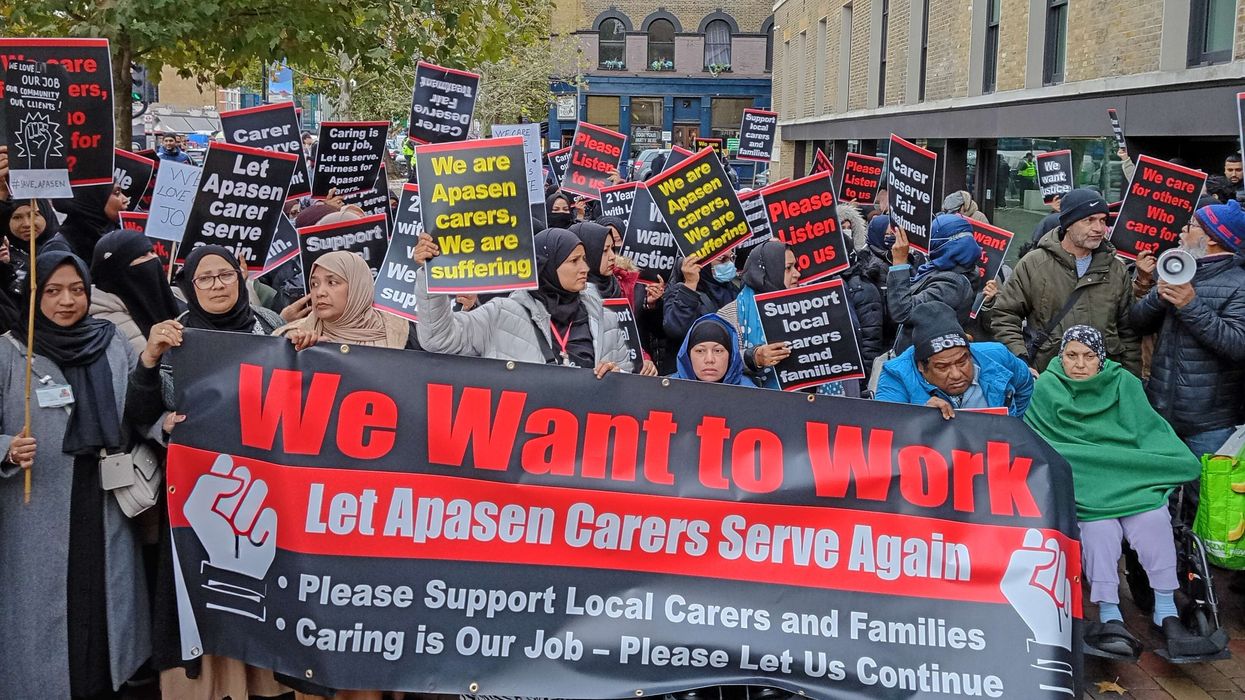Fears of 650 job losses for Asian and black civil servants in former foreign aid department
EXCLUSIVE
By Barnie Choudhury
THE UK government is “shooting itself in the foot” and is in danger of creating a less stable world.
That is the warning from Britain’s former most senior Asian civil servant, Sir Suma Chakrabarti, following the merger of the Department for International Development (DfID) and the Foreign and Commonwealth Office (FCO).
In an exclusive interview with Eastern Eye, Sir Suma, the former permanent secretary of the now defunct DfID, said he was concerned about what he sees as the “waning influence” of the UK under the new Foreign Commonwealth and Development Office.
“If the UK does not remain one of the main providers of the development system, then, over time, because the UK is important in a number of African countries, particularly, there are risks of increasing conflict and increasing migration,” said Sir Suma.
Prime minister Boris Johnson announced DfID’s closure in June, and the creation of a new Foreign, Commonwealth and Development Office (FCDO).
The government described the move as “an opportunity for the UK to have even greater impact and influence on the world stage as we recover from the coronavirus pandemic and prepare to hold the G7 presidency and host COP26 next year”.
But Sir Suma is concerned that the UK will lose world leading experts in development, creating instability.
He said, “It would mean the countries that are developing would not do as well. If these countries become more unstable, more conflict ridden, we should be worrying about the higher rates of migration and more conflict and more expenditure on trying to prevent conflict or deal with conflict. Since Britain is a magnet for many refugees, it is not in the national interest.”
The decision to merge the two departments came in the middle of an inquiry into international development by the Commons select committee. In July, MPs published their findings in the Effectiveness of UK aid: potential impact of FCO/DFID merger report.
The chair of the international development select committee, Sarah Champion MP, told Eastern Eye that the government had failed to consider any of the warnings in the report.
“Make no mistake about it, development does prevent conflict; it boosts security and enhances life chances of some of the most vulnerable around the world,” she said.
“Development seeks to make countries, their economies, healthcare and education systems more resilient and stable.
“If the new FCDO fails to honour its commitment to development, including spending 0.7 per cent of GNI (gross national income) on vital humanitarian relief and worthy development projects and programmes, the world would be a much tougher place for those struggling around the world.”
Champion accused the government of putting development on the “back burner”.
“Just last month we heard the UN secretary general warn that the coronavirus pandemic could put back progress on eradicating poverty and the other UN sustainable development goals by 25 years. The world needs development more, not less, at such a worrying time for so many of the world’s most vulnerable people.”
Unions have also warned that the merger of the two departments at the start of September will lead to job losses.
“About 160 staff are affected,” said a spokesperson for the Public and Commercial Services Union (PCS).
“They have been told that their current posts are only secure for the month of September 2020, but they cannot apply to move jobs or seek promotion as other FCDO staff can do from September 2.”
The union is concerned that cuts will affect only non-UK and Commonwealth staff.
A spokesperson said, “DFID was a nonreserved area of the civil service, which meant that both EU and commonwealth nationals can be employed within the department. However, some departments that have a national security interest are ‘reserved’, so only UK nationals can work there. FCO fell under the reserved category.”
Commonwealth insiders have accused the UK government of pushing a “colonial agenda”.
“We know the UK breaks international laws in specific and limited ways,” one source told Eastern Eye, referring to a minister’s comments over flouting the Brexit agreement.
“It looks as if Britain is at the end of Empire, having got what it wants and benefited from all that labour and hard work, and she is now simply pulling out. Beggar the consequences to those she leaves behind and forget human rights or employment laws.”
Sir Suma, who joined DfID’s predecessor, the Overseas Development Agency, in 1984, said he was confused about claims of “national security interests”.
“I can’t see what the national security issue is. Can you imagine someone working in maternal mortality? What is the national security interest of that? Let’s say someone working in Afghanistan or Iraq, then you would get some national security issues, because you are engaging with British intelligence services and so on. But the vast majority of DfID work, there is no link, and it doesn’t make sense to me.”
The PCS is also concerned the merger will lead to potentially hundreds of compulsory job losses. It said the civil service introduced a recruitment freeze in 2010.
Since then, those working in the FCO would be offered fixed term contracts (FTC) with the possibility of a permanent job 23 months later.
This stopped them claiming redundancy rights under current employment laws, which say you must have been working for the same company for two unbroken years.
“In August 2020, FCO-DfID HR (human resources) jointly announced the cancellation of the permanency process,” said the union. “FTC staff were offered the opportunity to apply for 12-month home roles or three to four-year international roles. Those reaching four years’ service will be considered permanent, but those who have 24 to 36 months service at the end of the contract will not be kept on, and FCDO claims that they will not have redundancy rights.”
The PCS is concerned this will affect staff who are non-white or socially disadvantaged. “Up to 500 staff are affected and many are young and BAME, from diverse socio-economic backgrounds, in comparison to the usual makeup of the former FCO staff. As the FTC staff do not have permanent jobs, they will be an easy target for the new FCDO to cut jobs.”
Eastern Eye has looked at the government’s civil service dashboard which breaks down its demographics. It shows that from 2012 to 2019, both the FCO and DfID ethnic minority representation rose from about 12 per cent to 14.5 per cent.
A government spokesperson told this newspaper, “All non-British national exDFID staff transferred to Foreign, Commonwealth and Development Office on day one, and there were no compulsory redundancies as a result of the merger. We have been engaging fully with staff and their trade union representatives throughout this process and will continue to do so.”
But the statement’s wording does not rule out compulsory redundancies in the future. A PCS spokesman told Eastern Eye,
“The department has given assurances of no compulsory redundancies, but it hasn’t carried out an equality impact assessment.
That means staff on fixed term contracts are potentially an easy target for any job cuts the department would want to make.”
But we have been told by senior civil servants in the new department that they do not believe that people will be forced to go. “I’m not sure it sounds quite right,” said one.
“No decisions have been made yet on nationality, and the prime minister has said there will be no forced redundancies, so I’m not sure the stories are accurate.”
The union may be right to be concerned. DfID’s final annual report showed that during 2019-2020 more than 3,500 people worked for the department, only 11 of whom were union members. The total DfID wage bill was £219 million.
The annual report also revealed that DfID spent £339,000 on eight so called “exit packages”, which includes redundancies, all of which were voluntary. But the previous year, 2018-2019, DfID made five people compulsorily redundant.
Champion said the government’s decision to merge the departments could not have come at a worse time. “We are now a few weeks into the new Foreign, Commonwealth and Development Office, and the details on how development will be championed remain unclear. The decision to merge the two departments came out of the blue in the middle of a government foreign policy review which has yet to conclude.
“We were assured by the government there will be no compulsory redundancies. Aid expenditure being wasted will always cause a stir. Failing to retain former DfID staff and their wealth of expertise, training and knowledge, constitute the sort of waste of public investment that should also cause a huge fuss, but sadly, probably won’t.”












